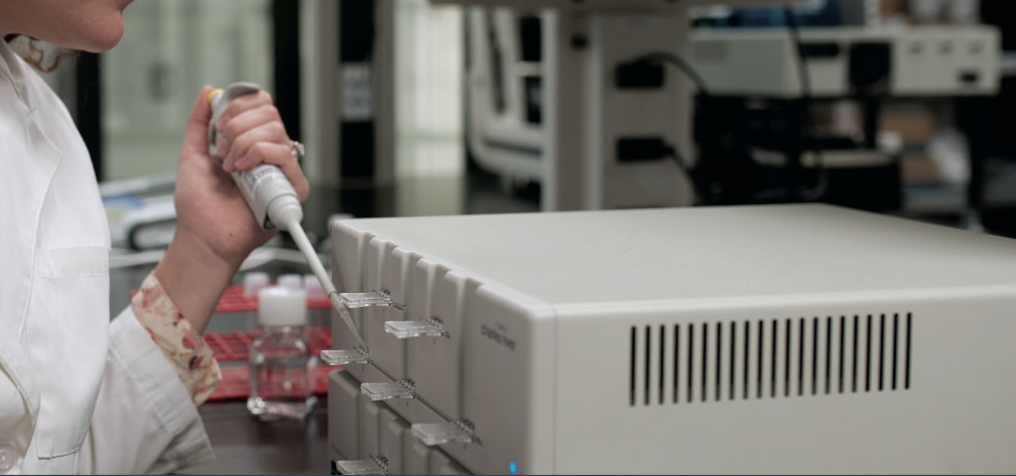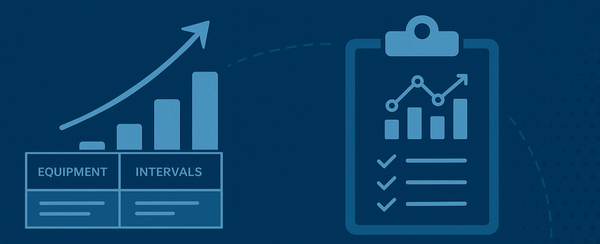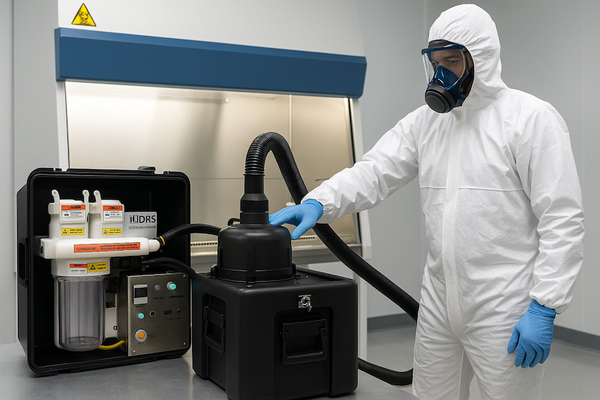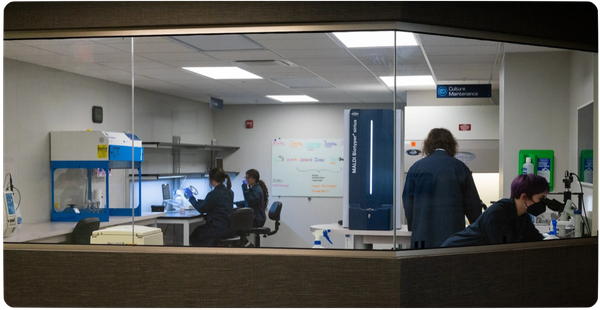Why Water Testing Matters More Than Ever in Life Sciences
Water quality is critical in life sciences. Contaminants in ultrapure water, WFI, or process water can compromise safety, compliance, and research integrity. With evolving regulations, rigorous testing is more important than ever.

Here's a concerning fact: a single contamination event in a pharmaceutical or biotech water system can lead to millions in lost revenue and potentially compromise patient safety. This is particularly critical in the emerging field of personalized biotherapies, where contaminated Water for Injection (WFI) could directly impact individual patient outcomes.
Let's dive into why water testing has become more critical than ever in today's regulated environment, especially as we move towards personalized medicine.
Microbial Water Testing for GMP Facilities: The Critical Role of Ultra-Pure Water
Think of high-purity water as the silent backbone of life sciences. It's used everywhere - from manufacturing traditional pharmaceuticals to developing cutting-edge biotherapies. With the rise of personalized medicine and custom-made biological treatments, Water for Injection (WFI) has become increasingly crucial as these therapies are often delivered intravenously.
Ion facilitated electron flow is measured through water conductivity, which is crucial in determining water purity for both pharmaceutical and biotech applications. The presence of extraneous ions affects this conductivity, highlighting the importance of monitoring and maintaining ultra-pure water, especially for WFI used in personalized treatments.
Purification Systems and Challenges
Purification systems are the unsung heroes in the quest for ultra-pure water, especially for WFI in biotech applications. These systems must meet even stricter standards when producing water for individual patient therapies, as there's no room for error when treatments are administered intravenously.
For biotech applications, particularly in personalized medicine, WFI systems often require additional safeguards beyond traditional pharmaceutical grade water. This includes enhanced monitoring systems and more frequent testing protocols to ensure consistent quality for patient-specific treatments.
Water Quality Parameters for Biotech Applications
Monitoring water quality parameters is crucial, with special considerations for biotech and WFI applications:
- Total Organic Carbon (TOC): Critical for both traditional pharmaceuticals and biotherapies.
- Endotoxin: A key parameter for WFI and sterile applications, ensuring injectable product safety.
- Water Conductivity: Must meet stricter standards for WFI systems.
- Bioburden: Particularly critical for cell and gene therapy applications.
The Two Pillars of Modern Water Testing
Modern water testing is built on two foundational pillars: microbiological analysis and endotoxin testing. These processes are especially critical in biotech applications where WFI is used for patient-specific treatments. Your facility must maintain the highest standards to ensure product quality, regulatory compliance, and patient safety—particularly when producing personalized therapies.
Microbiological Testing: Beyond the Basics
Today's microbiological testing uses advanced membrane filtration techniques to detect even the smallest bacterial colonies. For biotech applications, especially those involving WFI, testing must be even more stringent:
- TAMC (Total Aerobic Microbial Count): Critical for both traditional and biotech applications.
- TYMC (Total Yeast and Mold Count): Essential for maintaining WFI quality.
- Specific Organism Testing: Particularly important for cell culture applications.
The Endotoxin Challenge in Biotech
In biotech applications, especially those involving WFI, endotoxin control is paramount. Using technologies like the Endosafe Nexgen-MCS, we can detect bacterial remnants at incredibly low levels (0.01 EU/mL). This is particularly crucial for personalized therapies where contamination could directly impact patient safety.
Regulatory Requirements and Compliance
Both the US FDA and the European Medicines Agency (EMA) mandate stringent guidelines for pharmaceutical and biotech water systems, with particular emphasis on WFI systems used in personalized medicine. Regular audits verify compliance and ensure water meets the necessary standards for both traditional and advanced therapy applications.
The Future of Water Testing in Biotech
The landscape of water testing is evolving rapidly, particularly in response to the growing demands of personalized medicine. While automated monitoring systems and real-time testing capabilities are advancing, the unique challenges of WFI for individual patient therapies require specialized attention. Only routine sampling and microbial analysis performed by laboratories with ISO/IEC 17025:2017 Biological Testing Accreditation, such as Quantus, Inc., can provide the comprehensive verification needed to ensure water safety for both traditional pharmaceutical and advanced biotech applications.
Key Takeaways
- WFI testing is crucial for personalized biotherapies and traditional pharmaceuticals.
- Stricter standards apply to water used in patient-specific treatments.
- Modern technology improves testing accuracy for both traditional and biotech applications.
- Comprehensive documentation is essential for regulatory compliance across all applications.
Ready to Upgrade Your Water Testing Program?
Whether you need professional laboratory analysis or expert sampling services for pharmaceutical or biotech applications, we're here to help ensure your water quality meets the highest standards.
Schedule Lab Analysis Request Field Sampling




